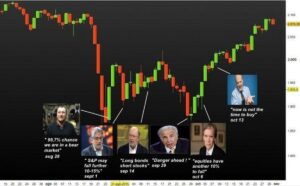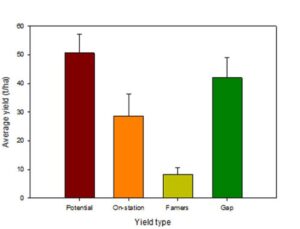In the realm of personal finance, there’s a myriad of options available for growing and managing your money. One such option that often garners attention is the money market account (MMA). But what exactly is a money market account, and how does it differ from other financial vehicles? In this guide, we’ll delve into the intricacies of money market accounts, exploring their features, benefits, and considerations for potential investors.
Table of Contents
What is a Money Market Account?
A money market account is a type of savings account offered by banks and credit unions that typically offers higher interest rates compared to traditional savings accounts. It combines the features of a savings account with certain aspects of investment accounts, providing a balance of liquidity, safety, and yield. Money market accounts are regulated and insured, making them a relatively secure option for parking your cash.
How money market accounts work
Money market accounts (MMAs) are interest-bearing deposit accounts offered by banks and credit unions. Here’s how they work:
Interest Rates: MMAs typically offer higher interest rates compared to traditional savings accounts but lower rates than certificates of deposit (CDs). The interest rates may vary based on market conditions and the financial institution’s policies.
Minimum Balance: Many MMAs require a minimum balance to open the account and may impose ongoing minimum balance requirements to avoid fees. The minimum balance varies depending on the financial institution and the specific MMA product.
Deposits and Withdrawals: Account holders can deposit funds into their MMAs either through electronic transfers, direct deposits, or in-person deposits at a branch. Withdrawals from MMAs are usually allowed through checks, ATM withdrawals, electronic transfers, or in-person withdrawals at the bank branch.
Check-Writing Privileges: Some MMAs provide check-writing privileges, allowing account holders to write a limited number of checks each month. This feature offers added flexibility in accessing funds compared to traditional savings accounts.
Federal Regulation: MMAs are subject to federal regulation, including the requirement to maintain reserves and restrictions on certain types of investments. These regulations aim to ensure the safety and stability of the MMA and protect depositors’ funds.
Federal Deposit Insurance: Like savings accounts, MMAs are typically insured by the Federal Deposit Insurance Corporation (FDIC) for banks or the National Credit Union Administration (NCUA) for credit unions. This insurance provides protection for depositors’ funds in case the financial institution fails, up to the insured limit.
Limited Transactions: Federal regulations impose limits on the number of certain types of transactions allowed each month from MMAs. These limits typically include a cap on the number of outgoing transfers or withdrawals to six per statement cycle, as mandated by Regulation D. Exceeding these limits may result in penalties or fees.
Safety and Liquidity: MMAs are known for their safety and liquidity, making them suitable options for individuals seeking a secure place to park their savings while maintaining easy access to funds. They offer a balance of higher interest rates than traditional savings accounts with lower risk compared to investments like stocks or bonds.
Overall, money market accounts provide a convenient and relatively low-risk option for individuals looking to earn interest on their savings while preserving liquidity and capital. However, it’s essential to review the terms and conditions of MMAs carefully, including fees, minimum balance requirements, and transaction limits, before opening an account.
Features of Money Market Accounts
- Interest Rates: Money market accounts often offer competitive interest rates, allowing account holders to earn a higher return on their savings compared to standard savings accounts.
- Minimum Balance Requirements: Many MMAs require a minimum balance to open the account and may impose ongoing minimum balance requirements to avoid fees.
- Limited Withdrawals: Unlike checking accounts, MMAs typically limit the number of withdrawals or transfers allowed per month, often with additional fees for exceeding these limits.
- FDIC Insurance: Money market accounts offered by banks are usually insured by the Federal Deposit Insurance Corporation (FDIC), providing protection for deposited funds up to certain limits.
- Check-Writing Privileges: Some MMAs offer check-writing capabilities, allowing account holders to access their funds more conveniently.
Benefits of Money Market Accounts
- Higher Interest Rates: MMAs often offer higher interest rates compared to traditional savings accounts, making them an attractive option for savers seeking better returns.
- Liquidity: While MMAs may have withdrawal restrictions, they still offer relatively quick access to funds compared to longer-term investments like certificates of deposit (CDs) or bonds.
- Safety: MMAs are considered low-risk investments due to their FDIC insurance coverage, making them a suitable choice for conservative investors.
- Diversification: Including MMAs in your financial portfolio can provide diversification, balancing higher-risk investments with a secure cash component.
Disadvantages of money market accounts
While money market accounts (MMAs) offer several benefits, it’s essential to consider their disadvantages as well. Here are some drawbacks associated with MMAs:
Lower Returns: Although MMAs typically offer higher interest rates than traditional savings accounts, they often yield lower returns compared to other investment options such as stocks or mutual funds. Investors seeking higher growth potential may find MMAs less appealing due to their relatively modest returns.
Inflation Risk: Inflation can erode the purchasing power of money held in MMAs over time. If the interest earned on the MMA does not keep pace with inflation, the real value of the savings may decline. This risk is particularly pertinent during periods of high inflation when interest rates on MMAs may not adequately compensate for rising prices.
Limited Growth Potential: While MMAs provide a safe and stable option for preserving capital, they may not offer the same potential for wealth accumulation as riskier investments like stocks or real estate. For investors with long-term growth objectives, relying solely on MMAs may hinder their ability to achieve their financial goals.
Withdrawal Restrictions: MMAs typically impose restrictions on the number of withdrawals or transfers allowed per month. Exceeding these limits may result in penalties or fees, limiting the account holder’s access to their funds. This lack of flexibility can be a disadvantage for individuals who require frequent or unrestricted access to their savings.
Minimum Balance Requirements: Many MMAs require a minimum balance to open the account and may impose ongoing minimum balance requirements to avoid fees. Maintaining the required balance can be challenging for some individuals, especially those with fluctuating income or limited savings.
Fees and Charges: Some MMAs may have associated fees, such as monthly maintenance fees, transaction fees, or excess withdrawal fees. These fees can reduce the overall return on investment and diminish the attractiveness of the account, particularly for savers with smaller balances.
Market Volatility: While MMAs are relatively low-risk investments, they are not entirely immune to market fluctuations. Changes in interest rates or economic conditions can impact the returns earned on MMAs, albeit to a lesser extent compared to more volatile investments. However, investors should be aware that MMAs may not provide complete protection against market risks.
Opportunity Cost: By allocating funds to MMAs, investors may miss out on potential opportunities for higher returns available in other investment vehicles. Depending on individual financial goals and risk tolerance, opting for the safety of MMAs may result in sacrificing potential growth opportunities elsewhere.
Overall, while money market accounts offer stability and liquidity, investors should carefully weigh the disadvantages against the benefits to determine whether MMAs align with their financial objectives and risk tolerance.
Considerations for Investors:
- Fees: Be mindful of any fees associated with MMAs, such as monthly maintenance fees or excessive withdrawal fees, as these can eat into your returns.
- Interest Rates: Compare interest rates offered by different financial institutions to ensure you’re getting the best possible return on your savings.
- Minimum Balance Requirements: Evaluate whether you can meet the minimum balance requirements of an MMA without impacting your financial stability.
- Withdrawal Restrictions: Consider whether the withdrawal limitations of an MMA align with your financial needs and spending habits.
Are money market accounts safe?
Yes, money market accounts (MMAs) are generally considered safe investments, primarily due to the regulations and protections in place:
Federal Deposit Insurance: MMAs offered by banks are typically insured by the Federal Deposit Insurance Corporation (FDIC), while those offered by credit unions are insured by the National Credit Union Administration (NCUA). These agencies provide deposit insurance coverage, which protects the funds held in MMAs up to a certain limit per depositor, per institution. As of 2022, the standard insurance limit is $250,000 per depositor, per insured bank, for each account ownership category.
Regulatory Oversight: MMAs are subject to regulatory oversight by federal agencies, such as the Federal Reserve Board and the Securities and Exchange Commission (SEC). These regulations govern various aspects of MMAs, including the types of investments allowed, reserve requirements, and transaction limits.
Low Risk Investments: MMAs typically invest in low-risk, short-term securities such as Treasury bills, certificates of deposit (CDs), and commercial paper issued by highly rated corporations. While these investments offer lower returns compared to riskier assets like stocks, they also carry lower levels of risk.
Liquidity: MMAs offer high liquidity, allowing account holders to access their funds easily through checks, debit cards, electronic transfers, or in-person withdrawals at bank branches. This liquidity ensures that funds are readily available when needed, providing a level of financial flexibility and security.
Stability: MMAs are designed to provide stability and preserve capital, making them suitable for investors seeking a safe haven for their savings. They offer a conservative option for individuals who prioritize safety and capital preservation over higher potential returns offered by riskier investments.
While MMAs are generally safe, it’s essential for investors to carefully review the terms and conditions of the account, including any fees, minimum balance requirements, and limitations on withdrawals. Additionally, investors should ensure that their MMA deposits do not exceed the maximum insurance limit to fully benefit from FDIC or NCUA coverage.
What is the difference between a money market account vs. other accounts?
Money market accounts (MMAs) differ from other types of accounts, such as savings accounts and checking accounts, in several key ways:
Interest Rates: Money market accounts typically offer higher interest rates compared to traditional savings accounts. This is because MMAs often require higher minimum balances and may have more restrictions on withdrawals. However, the interest rates on MMAs may vary depending on market conditions and the financial institution offering the account.
Check-Writing Privileges: Unlike savings accounts, many MMAs provide check-writing privileges, allowing account holders to write a limited number of checks each month. This feature provides added flexibility in accessing funds compared to traditional savings accounts, which typically do not offer check-writing capabilities.
Minimum Balance Requirements: Money market accounts often require higher minimum balance requirements compared to savings accounts. Failing to maintain the minimum balance may result in fees or a reduction in interest earnings. In contrast, savings accounts may have lower or no minimum balance requirements, making them more accessible to individuals with smaller balances.
Transaction Limits: MMAs may impose transaction limits on withdrawals and transfers, similar to savings accounts. Federal regulations restrict certain types of transactions from MMAs to six per statement cycle, although in-person withdrawals or transfers made at ATMs are often unlimited. In contrast, checking accounts typically have fewer restrictions on transactions, allowing for more frequent withdrawals and transfers.
FDIC or NCUA Insurance: Money market accounts offered by banks are typically insured by the Federal Deposit Insurance Corporation (FDIC), while those offered by credit unions are insured by the National Credit Union Administration (NCUA). This insurance coverage provides protection for the funds held in MMAs up to a certain limit per depositor, per insured institution. This insurance coverage ensures that funds in MMAs are protected against bank failure or insolvency, similar to savings accounts.
Overall, money market accounts offer a balance of liquidity, interest earnings, and safety, making them a popular choice for individuals seeking to earn higher interest rates while maintaining easy access to their funds. However, it’s essential to consider factors such as minimum balance requirements, fees, and transaction limits when comparing MMAs to other types of accounts.
What is the difference between a money market account and a money market fund?
The primary difference between a money market account (MMA) and a money market fund (MMF) lies in their respective structures and regulatory oversight:
Nature:
- Money Market Account (MMA): A money market account is a type of deposit account offered by banks and credit unions. It operates similarly to a savings account but typically offers higher interest rates and may require a higher minimum balance. MMAs are insured by the Federal Deposit Insurance Corporation (FDIC) or the National Credit Union Administration (NCUA), providing protection for depositors’ funds up to the specified limit.
- Money Market Fund (MMF): A money market fund is a type of mutual fund that invests in short-term, low-risk securities such as Treasury bills, commercial paper, and certificates of deposit. MMFs are typically offered by investment companies and brokerage firms. Unlike MMAs, MMFs are not insured by the government, and their value can fluctuate based on changes in interest rates and the performance of the underlying securities.
Regulation:
- Money Market Account (MMA): MMAs are subject to banking regulations and are governed by the Federal Reserve Board and the FDIC or NCUA. These regulations include requirements such as reserve ratios, deposit insurance, and limits on withdrawals.
- Money Market Fund (MMF): MMFs are regulated by the Securities and Exchange Commission (SEC) under the Investment Company Act of 1940. The SEC imposes various rules on MMFs, including restrictions on the types of securities they can hold, minimum credit quality standards, and limitations on portfolio maturity and liquidity.
Risk and Return:
- Money Market Account (MMA): MMAs are considered low-risk investments, offering stability and security for depositors’ funds. They typically provide modest returns based on prevailing interest rates.
- Money Market Fund (MMF): While MMFs also aim to preserve capital and provide liquidity, they are subject to market risk and credit risk. Although they invest in high-quality, short-term securities, there is a slight risk of loss if the value of the underlying securities declines. However, MMFs generally offer higher yields compared to MMAs due to their investment in higher-yielding securities.
Accessibility:
- Money Market Account (MMA): MMAs often offer check-writing privileges and ATM access, providing depositors with easy access to their funds. However, MMAs may have restrictions on the number of withdrawals or transfers allowed per month due to federal regulations.
- Money Market Fund (MMF): MMFs typically do not offer check-writing privileges or direct access to funds through ATMs. Investors can buy and sell shares of MMFs through investment companies or brokerage firms, with transactions processed at the fund’s net asset value (NAV) per share.
In summary, while both money market accounts and money market funds offer stability and liquidity, they differ in their underlying structure, regulation, risk profile, and accessibility. MMAs are deposit accounts offered by banks and credit unions, providing FDIC or NCUA insurance and offering lower returns but greater security. On the other hand, MMFs are mutual funds that invest in short-term securities, offering potentially higher returns but with slightly higher risk and without deposit insurance protection.
Conclusion
Money market accounts offer a compelling blend of liquidity, safety, and yield, making them an attractive option for savers looking to optimize their cash holdings. By understanding the features, benefits, and considerations associated with MMAs, you can make informed decisions about whether incorporating one into your financial strategy aligns with your goals and risk tolerance and your investments





